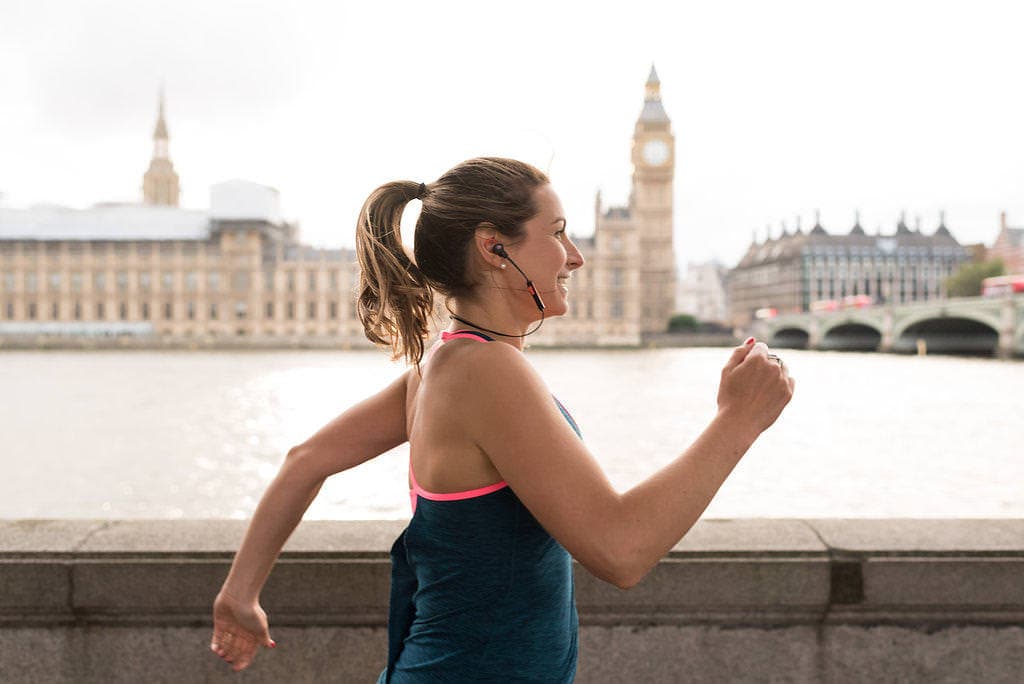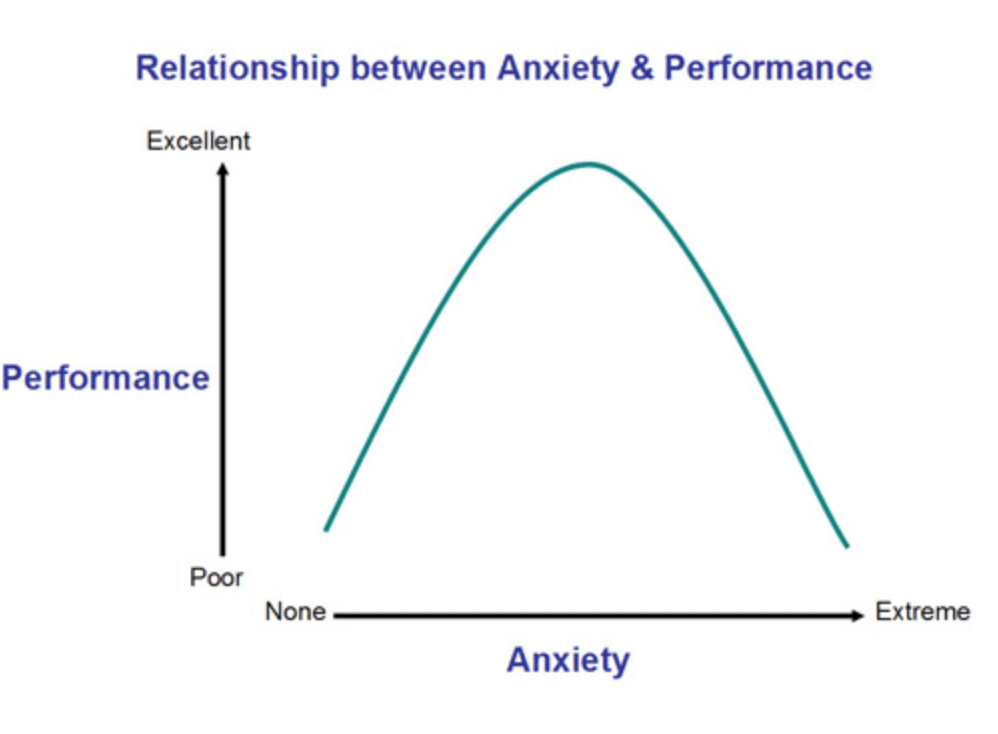The more I’ve trained for and run 26.2 mile races, the more I’ve realised what a mental game a marathon is, let alone the four months leading up to race day. I was invited to the Marie Claire FitFest a few weeks ago, and although I couldn’t be there for the whole session, I was very keen to attend Ruth Anderson‘s talk ‘Mind Fit’.
Ruth is the head psychologist for the GB cycling team, standing next to Laura Trott in the velodrome in Rio as Jason Kenny took to the track. Considering the number of golds Team GB brought home in August, you could say she knows what she’s talking about…
When it comes to running, (or any other fitness goal) what does success look like to you? Is it a new PB/PR, increased endurance, tackling an Obstacle course race?
According to Ruth, we shouldn’t define success by the end outcome, yes we should have goals however we can’t always control the end outcome. Indeed, actually we can also set the bar too low for ourselves, not knowing what we can really achieve until we set out to do it.
When we set a specific time goal, for a marathon for example, we might be underestimating what we could really achieve and thinking too far ahead about the specific time outcome could limit our performance. Instead we need to do everything we can to maximise the chances of performing at our best, and seeing what the outcome is – most of the time we can perform at a higher level than we originally thought.
‘no reward comes without risk, sometimes risks don’t pay off but if you don’t take them you’ll never know’
In order to do this, we need to understand how we function under pressure – both good and bad, and develop strategies to overcome barriers, maximise your strengths and train your psychological skills.
We can’t always control an outcome – or barriers like weather, injury, or stomach issues on race day, however it’s how we respond to them, focusing on what we can control, that affects how we overcome these obstacles.
‘if you strive to be perfect, you’ll always fail’
It’s imperative to accept that you’re not perfect, you’re not going to be good at everything, but you can work hard at the skills that are not your strengths to overcome your weaknesses. Expecting yourself not to make mistakes ensures that you’ll struggle when you face adversity.
‘the biggest barrier in life is anxiety’
Anxiety is the natural enemy to success and mental fitness, it is the way the body and mind react to being placed in a high performance situation, the way it deals with stress. It is a true fight or flight scenario.
However, although we may see anxiety as a barrier to performance, when we are anxious we are actually less naive, can think more clearly, we are physically stronger and more alert. If you can accept it, you can use it to your advantage. It is only a problem if it becomes out of proportion, out of control and prevents you from achieving what you want to achieve, performance only drops if anxiety levels get too high. If you can learn to tolerate and limit its interference on your mind, then you can perform to your top ability.
Focus on what’s in your control – you can’t control end outcome however everything about YOU is in your control. Whilst you can’t change environment or situations, but you can control you and your response to those situations.
To be pyschologyically strong you focus on what you think, what you feel and what you do. If you’re focused on those three things, you’re doing everything in your control to get the best out of yourself- if you do this well, then you’re doing everything that you can to be successful.
‘sometimes 1 or 2 failures in the past help you become successful in the long term’
Failures can help us develop self -awareness, arguably the most important psychological skill. It builds an awareness of how we function and behave in certain situations. Thought patterns happen automatically, and often we don’t even notice what our thought patterns are because they come so naturally. Having an idea of how we think when we’re under great pressure is the greatest tool kit to allow us to take control.
Check in with yourself, pay attention to your thoughts and behaviours, what are you thinking? Are you doubting your ability to achieve? Your thoughts are indicators of what you need to work on to succeed. Once you’ve accepted that you need to make some changes, it’s about actioning some plans to control your thought pattern and the emotional response of your body.
Even if you fail, at least you’ve taken a risk.
‘anxiety one of the most universal emotions, but also one of the easiest to turn around over time’
Relaxation is a useful tool to change your psychological state.
Deep abdominal breathing exercises will immediately lower your heart rate, and relax your body. If you’re thinking about doing the breathing repetitions, you’re also clearing your mind of any anxious thoughts. If you’re in a moment where you’re feeling acute anxiety, you can lower your physiological response with simple, effective techniques e.g. at the start line of a marathon or before a job interview. Try an app to practice at home, like the Relaxation HQ app.
Schedule in relaxation time, such as Pilates, yoga, meditation, and slow yourself down to help you think more clearly and give you a distraction from worrying. (I find this particularly true for me and Yin yoga classes!)
The key is working on your thought process, the more you start learning the process of changing thinking into more constructive, positive thoughts, the greater impact you’ll have over your performance.
‘the more exposure you have to challenging situations, the better you get at controlling your anxiety’
The more you put yourself into situations that raise your anxiety, you’ll find that it becomes easier to overcome it. Focusing on the key things you can do stops the anxiety from becoming overwhelming.
Don’t try to stop thinking about something – that doesn’t work. Let the thoughts come into your mind, constructively deal with it, then over time it will become automatic.
Key to reset your thinking;
- Be aware – recognise unproductive thoughts.
- Accept your thoughts – not good or bad, it’s just what you’re thinking. Own it.
- Reset. Replace those thoughts with a more constructive way of thinking and a plan. Refocus on something within your control and the strategy to overcome that negative feeling. Be task and action focused.
‘stop looking sideways’
Comparing ourselves to others can limit us, we put ourselves down by looking at people around us. Give yourself the opportunity to identify your strengths, we all have weaknesses and as long as you’re aware of them and make a plan to overcome that, then you can create successes that are right for you. With that said, you can learn from others. Seeing what other people are doing well, so that you can improve your own skills, as long as you can manage your thinking around that. Admiring their ability without putting your own ability down.
Do you think about the psychological side of your training? How often do you focus on your mental fitness?





Great blog! 🙂
This is an interesting take on anxiety..I suffer with anxiety on a normal day to day basis and I am learning how to use it to better my life instead of letting it hinder and hurt my health and life. I dfeinitely think you can use the anxiety to fuel your runs, competitions if you use the energy and tension in a positive outlet!
So many great tidbits in here! I definitely perform better (race wise) when I’m not overly anxious about it- but I agree that a little bit of anxiety can help too. I would have loved to hear her whole talk!
My dad always used to say to me before a race,’ it’s good to be nervous, just don’t be scared’.. that always really helps me get the right level of anxiety (without actually realizing that’s what I was doing until just now!)
That is SUCH a good saying – I’m going to take that with me! Thanks Kathy!
I love the point about not defining success by the end outcome – especially when it comes to marathons. You don’t always know how race day is going to go, but you certainly can try and control how you react!
There is so much that is out of our control – frustrating but we have to deal with it! It has made me rethink my specific time goals from 3.35 to BQ with any time that will be good enough for that 🙂